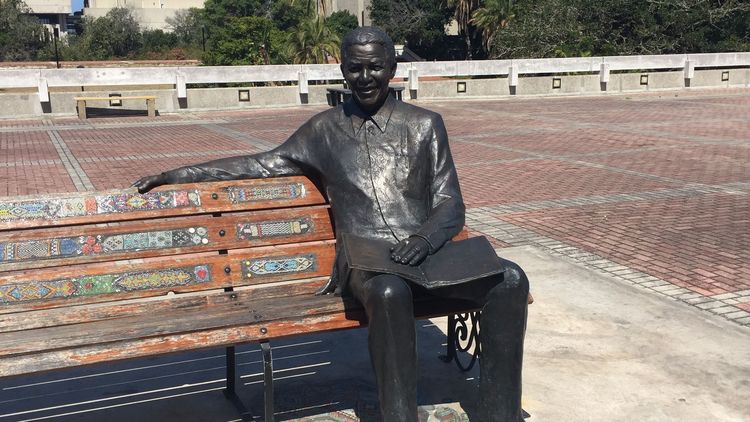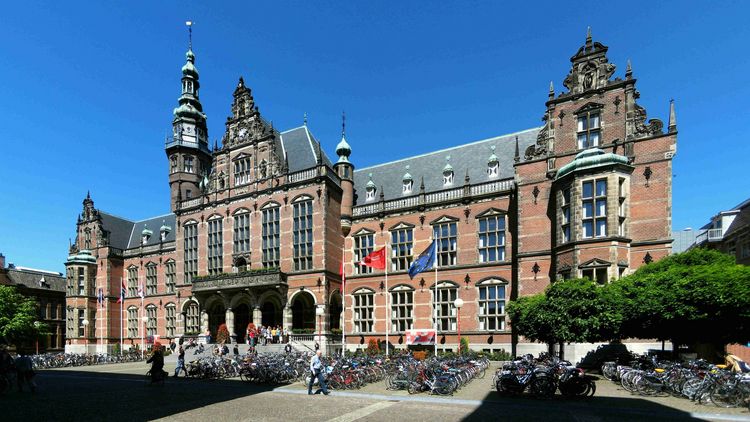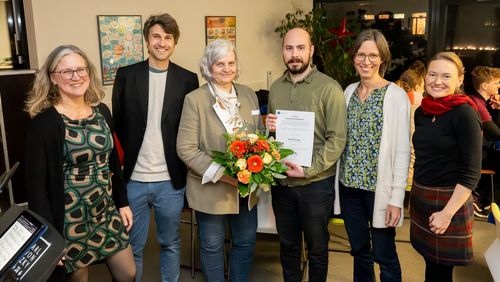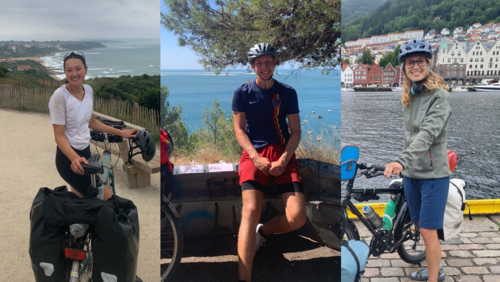Raising awareness to cultural diversity is what a DAAD project for the internationalization of teacher education intends. The university and its partners are now trying to find ways to achieve this goal in times of the pandemic.
Head teachers who include Arabic in their letters to parents, students who explain the Sugar Festival Eid to their classmates, parents who offer a Danish club at their children's school: Schools in Germany have become culturally diverse. According to the Federal Statistical Office, about eleven percent of all pupils at German schools came from abroad in the school year 2018/19.
Future teachers need to be made aware of this diversity and to acquire intercultural skills, they need to gather relevant experience during their studies already, for example by going abroad, says Jenka Schmidt, head of the University of Oldenburg’s International Office (IO). "Everyone who will be teaching later on should have intercultural experiences, everyone should have made the experience of being foreign at some point.”
According to the German Academic Exchange Service (DAAD) students of teacher education find their way abroad less often than other students. This is in part due to the fact that studying or internings abroad is not part of the curriculum and there can be problems with the recognition of academic achievements abroad, explains the IO’s project coordinator Tina Grummel.
Scholarships, summer schools, intercultural training
Overcoming these problems and paving the way for future teachers to go abroad is the core of the "Lehramt.International" programme, which DAAD initiated last year. The University of Oldenburg is one of currently 19 model universities in Germany and has received about 460,000 euros from the Federal Ministry of Education and Research (BMBF) for the project, which started in summer 2019 and is scheduled to run for three years.
The goal of the Oldenburg project "Dimensions of Diversity in Teacher Education" is to embed the internationalization of teacher education in the university in the long term, explains project coordinator Grummel. The programme offers individual scholarships for semesters and internships abroad for students, as well as summer schools, guest lectureships and intercultural training.
The project incorporates various partners from within and outside of the university: Currently, the University’s Departments of Educational Sciences, Special Needs Education, the Institutes for English and American, German and Dutch Studies, and the Institutes for Music as well as Chemistry are involved. Moreover, the University's strategic partners - the Rijksuniversiteit Groningen in the Netherlands and the Nelson Mandela University in Port Elizabeth, South Africa - bring an international dimension to the project.
Virtual collaboration worked out excellently
"It will be easier for students of teacher education to have their studies abroad recognized and credited to their studies here. We also want to make internships abroad possible through firm cooperations with international schools," says Prof. Dr. Martin Butler. The professor for American Literature and Cultural Studies is a member of the project's steering group. In the long run, students from the partner universities will also benefit from an increasing number of courses taught in English in Oldenburg.
In view of the corona pandemic, this year's work is focussing on content - and this will be done online, explains Grummel. Running an online workshop in mid-June brought together Oldenburg faculty and their colleagues from South Africa and Groningen for the first time. Thanks to everyone’s flexibility, the intense virtual collaboration worked out excellently, says Jenka Schmidt.
Working together so intensely despite the hardship caused by the pandemic strengthens our trust in each other, adds the educational scientist Prof. Dr. Karsten Speck, who is also a member of the project’s steering committee. Speck has worked together with colleagues from Nelson Mandela University in other projects already. "We know that we can rely on each other even in times of crises. This is an important prerequisite for our current digital cooperation and for expanding the international exchange of students and lecturers between the three universities in the future," he says.
Even classroom observations could take place online
There are also plenty of ideas on how online cooperation could look like in the coming months. Faculty from all three universities are working on an online seminar series with the umbrella theme being social justice in inclusive education and the multilingual classroom. The advantage of the format is that the seminar series can be offered every year and even beyond the end of the project, Grummel emphasizes. "In addition, students will benefit from the offer who for various reasons cannot go abroad."
Also the intercultural training preparing students for their stay abroad, will be offered online in autumn. Given the current situation students from all three countries will now get to know each other virtually first before starting their physical mobility at the partner university. Even classroom observations, which the Universities of Oldenburg and Groningen have already been engaged in earlier, could take place online. "These 'lesson studies' have sparked an interest in all three partners now," says Tina Grummel.





